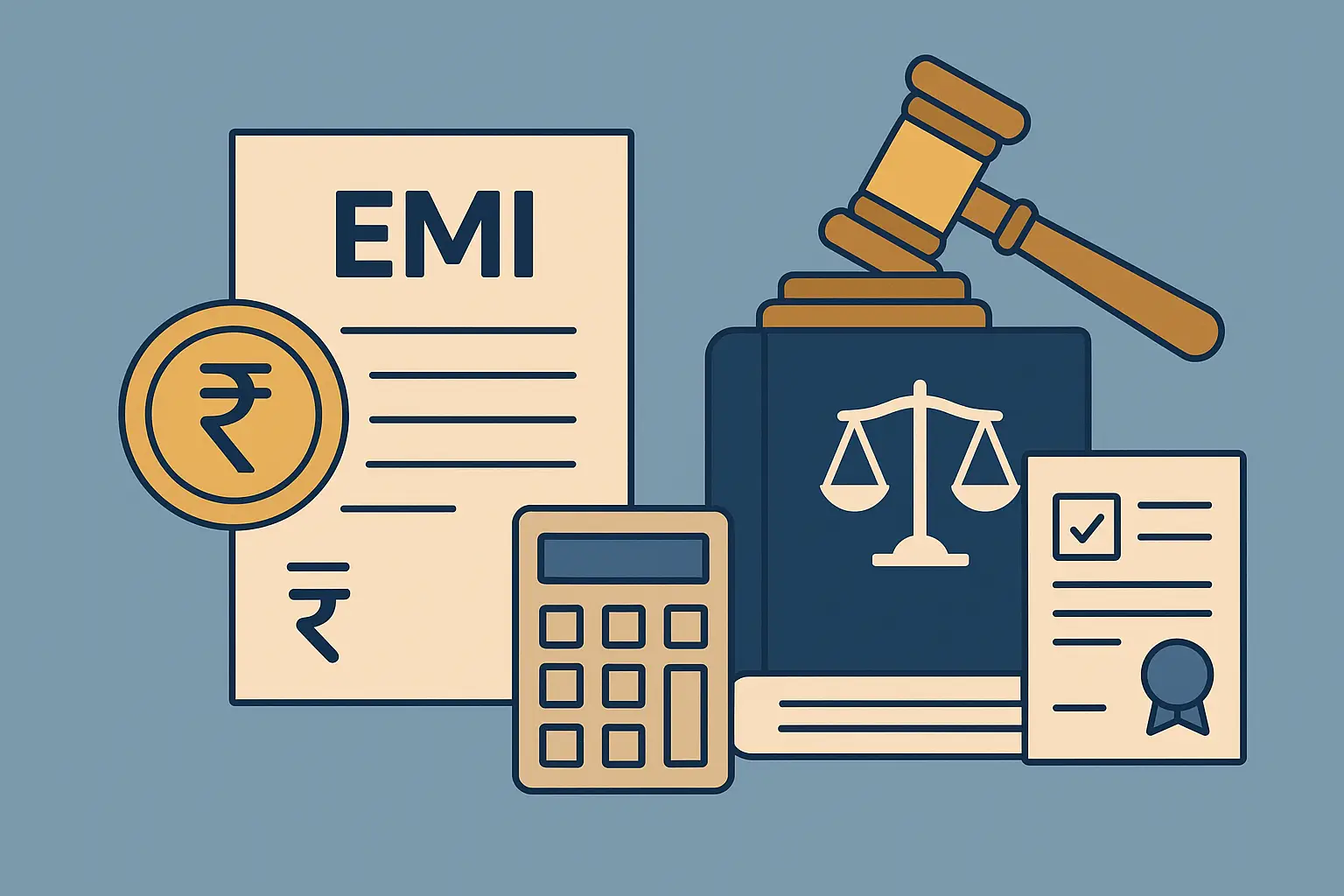The Legal Basics of Offering EMIs to Customers in India
Offering flexible payment options has become essential for businesses looking to boost sales and customer satisfaction. One of the most effective tools in this regard is the Equated Monthly Installment (EMI). However, before enabling EMI options, it’s crucial for merchants to understand the legal requirements for offering EMIs in India.
In this guide, we break down the legal framework, RBI compliance guidelines, and how platforms like Secure EMI simplify the entire process while ensuring full regulatory adherence.

What Are the Legal Requirements for Offering EMIs in India?
Understanding the legal requirements for offering EMIs in India is key for any business planning to implement installment-based payments. EMI offerings are governed by several regulatory frameworks, most notably the guidelines set forth by the Reserve Bank of India (RBI) and the National Payments Corporation of India (NPCI).
Here's what you need to know:
1. RBI Guidelines
Businesses must ensure EMI services comply with RBI’s guidelines on fair lending practices, digital lending norms, and KYC verification. EMI options cannot be misleading or exploitative, and full transparency must be maintained with customers regarding interest rates, repayment schedules, and penalties.
2. KYC Compliance
As per RBI norms, Know Your Customer (KYC) verification is mandatory before any recurring payment system is activated. This helps prevent fraud, identity theft, and money laundering.
3. Use of Authorized Platforms
To process recurring payments, merchants must use platforms authorized by the RBI or integrated with NPCI infrastructure. This includes tools like UPI Autopay and NACH mandates, which offer secure, automated EMI deductions.
4. Data Privacy and Consent
Collecting and storing customer data must comply with India's Personal Data Protection framework. Informed consent is critical before initiating EMI plans.
5. Clear Terms and Documentation
Every EMI plan must have a clear digital agreement between the merchant and the customer outlining the principal amount, EMI duration, repayment amount, penalties for non-payment, and cancellation terms.
Offering EMIs isn’t just a sales strategy — it’s a compliance-driven financial service. By following RBI guidelines and leveraging platforms like Secure EMI, merchants can unlock higher conversions while staying legally protected.
Benefits of Offering RBI-Compliant EMIs
Merchants that follow the legal route for EMI offerings gain significant advantages:
- Increased Conversions: Customers are more likely to complete high-value purchases when flexible payments are available.
- Customer Trust: Legal and secure platforms like Secure EMI build consumer confidence.
- No Bank Dependency: Merchant-funded EMIs remove the need for third-party credit card issuers or banks.
- Reduced Defaults: UPI Autopay and NACH ensure recurring collections are timely and automated.
- Regulatory Safety: Compliance with RBI guidelines avoids penalties or legal issues.
How Secure EMI Simplifies Compliance
Secure EMI is purpose-built for merchants looking to provide compliant EMI options without complex integrations or legal risks.
RBI-Compliant Infrastructure
Built on NPCI’s secure framework, Secure EMI fully supports both UPI Autopay and NACH recurring mandates. This ensures automated, secure collections directly from customers’ bank accounts.
End-to-End EMI Lifecycle Management
From creating EMI plans to managing KYC verification, recurring payments, and final settlements, Secure EMI handles everything.
Merchant-Funded Flexibility
No need to involve credit cards or loans. Merchants can fully customize EMI terms based on customer needs and product price points.
Simple Onboarding
All it takes is a few steps to get started:
- Sign up and complete KYC verification.
- Create EMI plans via dashboard.
- Send authorization link to the customer.
- Customer sets up UPI Autopay or NACH.
- Recurring collections begin automatically.
Real-World Use Cases
1. Electronics Retailer in Delhi: An electronics store implemented Secure EMI to allow EMI-based mobile purchases. In three months, sales rose by 28%, with 90% of transactions completed via UPI Autopay.
2. D2C Fashion Brand: A direct-to-consumer fashion brand offered 3-month EMIs on orders above INR 2,000. Customer retention improved and average cart size increased by 37%.
3. Furniture Merchant:A medium-sized furniture merchant in Pune used Secure EMI’s dashboard to manage NACH-based EMI collections for larger orders (INR 15,000+), reducing follow-ups and manual reconciliation.
Frequently Asked Questions (FAQ)
Q1. Is it legal to offer EMIs without involving a bank or credit card company?
Yes. Merchant-funded EMI plans using RBI-approved platforms like Secure EMI are fully legal, provided you follow compliance norms.
Q2. What if a customer defaults on their EMI?
Secure EMI automates reminders and retries via UPI Autopay or NACH, reducing default risk. Clear digital agreements help resolve disputes.
Q3. Can EMIs be offered on UPI transactions?
Yes, Secure EMI fully supports UPI Autopay for EMI collections.
Q4. How long does onboarding take?
Merchants can be onboarded and live with EMI offerings within 24–48
Compliance Made Simple: Get Started with Secure EMI
Understanding the legal requirements for offering EMIs in India helps merchants protect their businesses while delivering more value to customers. Secure EMI takes care of compliance, collections, and customer convenience — all in one platform.
Whether you're a retail store, D2C brand, or a growing SME, the time to act is now.
Ready to offer RBI-compliant EMIs to your customers?
Contact Secure EMI and get started in under 48

Leave a Comment